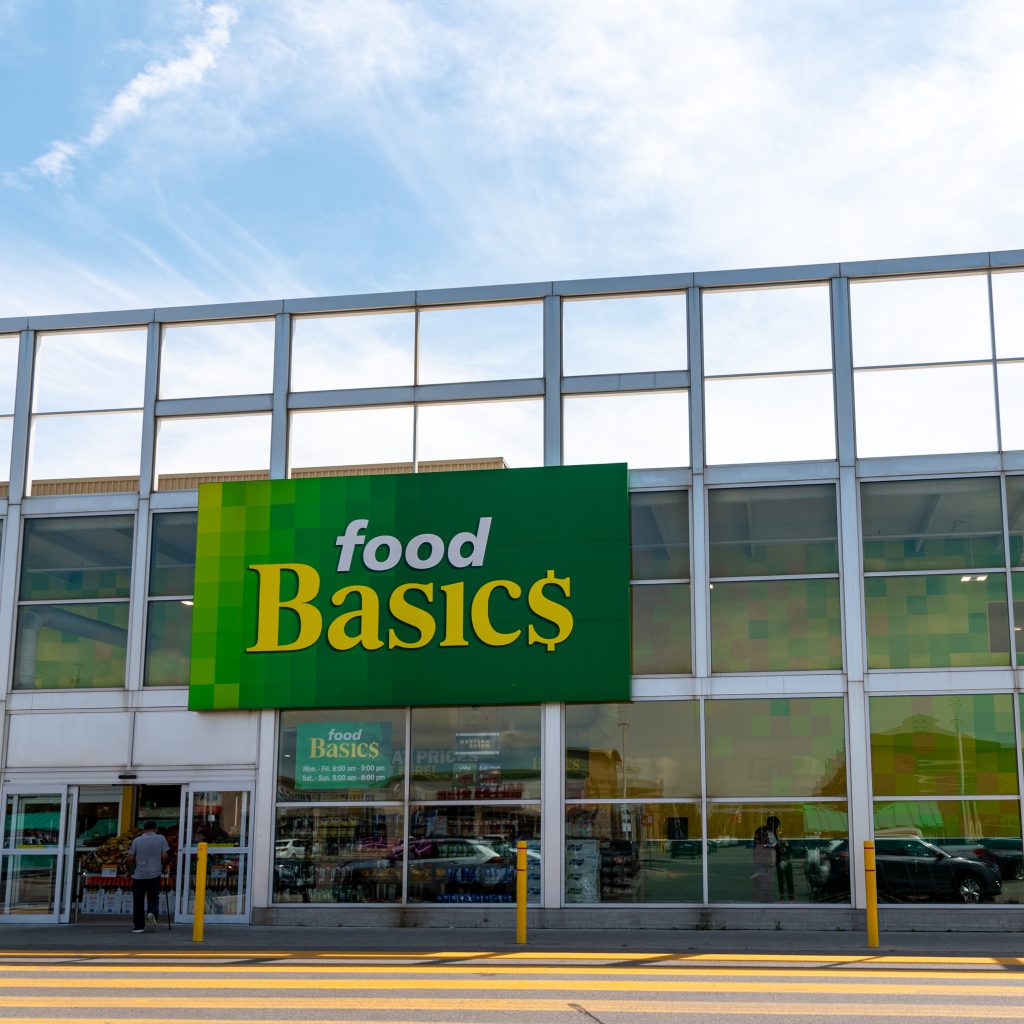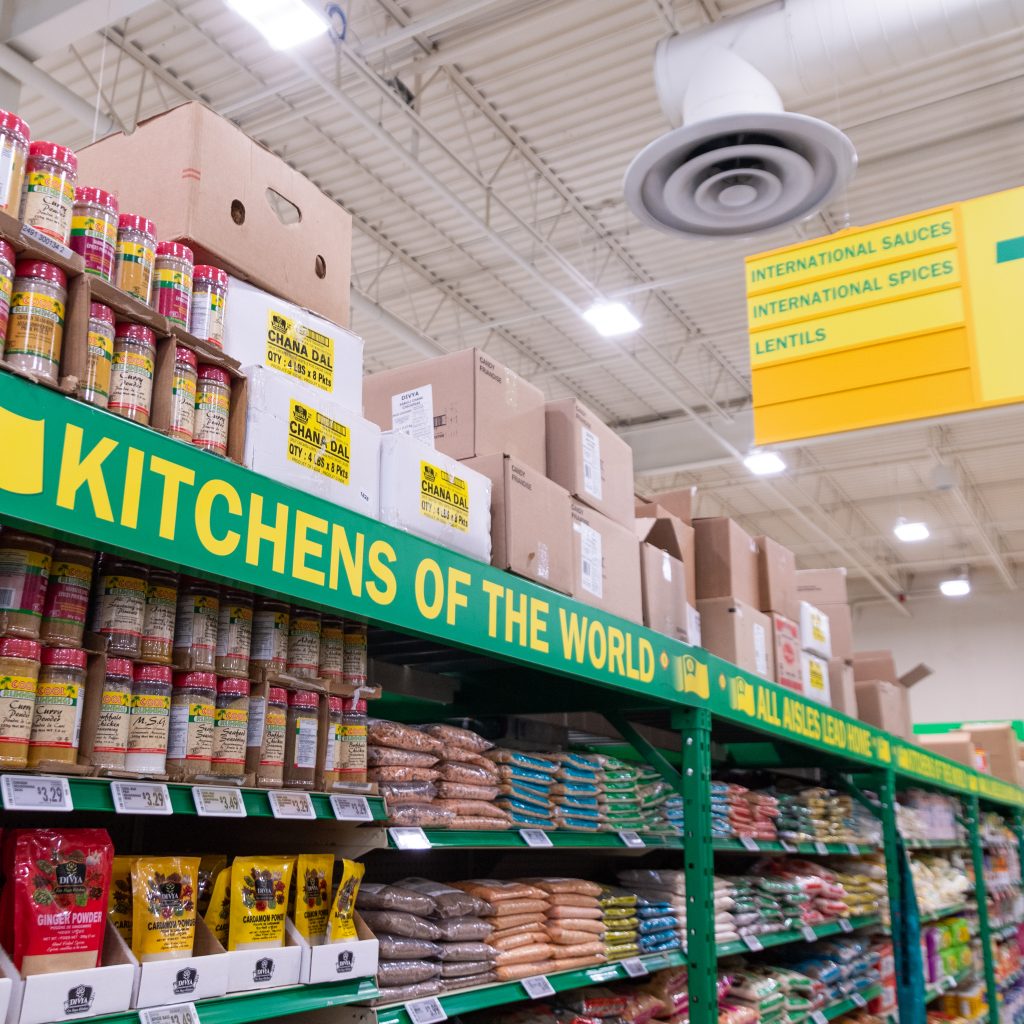
By Brook Thalgott
Canada has experienced a great deal of change over the last 10 years. We have seen an influx of newcomers seeking new opportunities. Many industries are changing rapidly thanks to technological disruption touching almost everything we do. We have also experienced a global pandemic and its aftermath of supply chain disruptions, tight labour market, and rising inflation.
The food business has not been immune to these changes. Today’s consumers are more diverse, more focused on health, and more conscious about price, quality and variety in their purchases than ever before.
Sal Galle, vice president of merchandising and category management at Food Basics, has a lot to say on how changing demographics are driving decisions in everything from international foods, to private label products, to merchandising, and more.
Getting down to business

For Galle, it all starts with knowing what Food Basics promises its diverse and price-conscious customer base: food that’s always fresh, always in stock, and always at a great price. However, there is growing complexity to the food behind those promises.
“We’re seeing that customers are looking for value in-store more than ever,” says Galle. “The industry overall is seeing that shoppers are heading to discount banners due to inflation, looking for affordable choices. At the same time, they’re also conscious about their environmental footprint, and many are seeking wellness from their choices, such as plant-based, gluten-free or organic options. And that’s on top of the growing diversity in shoppers who seek international foods.”
A global perspective
Food Basics is learning a lot about a growing segment of its customer base: newcomers to Canada. “We’re seeing more and more demand from diverse consumers who are seeking international food choices,” says Galle. This growing set of shoppers are changing product mixes in-store, in everything from dry goods to proteins to produce. Plus, they want authenticity, not knock-offs.
“Our category management team is developing a deep understanding of international cuisine, culinary traditions and holidays,” says Galle. “Our data is showing us our customers’ preferences and price sensitivities, and which stores need what product mix based on the local population and their preferences.” From there, Food Basics creates the right selection by store, and builds relationships with international suppliers to get the products.


Today’s Food Basics stores carry an ever-growing mix of international foods that are selected for the customers served at each location. Every store can be unique, depending on the food preferences of the area it serves. Fresh produce like bok choy and mangoes, halal offerings and more fish varieties within meats and seafoods, and new pantry staples like atta flour, dried dates, corn oil and ghee are finding a home at Food Basics.
Plus, Food Basics is also developing relationships with more international food suppliers to bring a taste of home to their customers. “Our international partners also have their own valuable market intelligence on customer preferences and trends, which helps us decide where to focus our efforts,” says Galle.
In private
Food Basics’ private label selection is also playing a pivotal role in today’s competitive food marketplace.
“Private label is a growing category, thanks to consumers seeking to maximize their budget. For us, that means providing food that is both great value and great quality. Shoppers want to save money without losing taste or quality.”
For Food Basics, that has meant closely examining what customers are looking for.
“We look for gaps in the market where consumers are looking for a private label alternative. But it’s more than offering a ‘knock off.’ It’s finding the right product, flavour profile and price.”
Galle points to Food Basics Irresistibles Ontario Peach Vanilla Ice Cream as proof. “The product is one of our most popular private label SKUs, and it came from understanding trends, and making decisions based on that data.”
Good decisions
To meet the demands of Food Basics’ customers, and its promise of fresh, good food at a fair price, data analytics are playing a growing role in how decisions are made. “Our data gives us valuable insight into our customers and their preferences, buying patterns, and journeys,” says Galle. “From there, we can customize our offerings down to the store level and ensure that value is centred with innovative promotions that our customers want.”
Data also helps Food Basics find gaps that need to be filled, identify emerging trends, and gauge price sensitivity. “The use of data has been vital when it comes to making decisions. Our access to buying behaviour optimizes our offerings on store shelves, how and where we advertise, and what’s in our flyer.”
Food Basics can also see how products resonate, how many customers are reached, and how that translates to sales. “That information helps us build a flyer that will drive customers to our stores. It’s a customer-centric approach that works.”
Bringing it together
While changing demographics and price demands are driving many of the decisions made at Food Basics, there is still something that remains the same: value for money. “Value for money is what we bring, and learning about our customers and how we can best serve them is what makes it happen,” says Galle. “With access to good data, we can put plans together and execute strategies that bring value to our current customers and attract new ones. It’s about doing what we say we’re going to do and prioritizing our customers every step of the way.”

